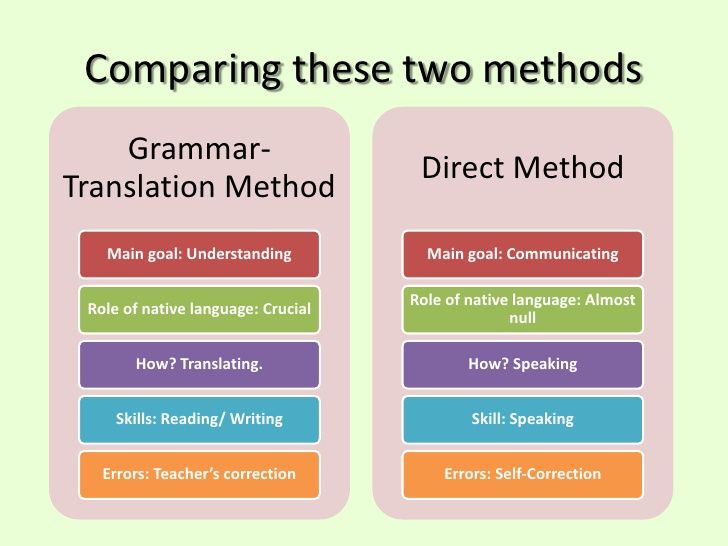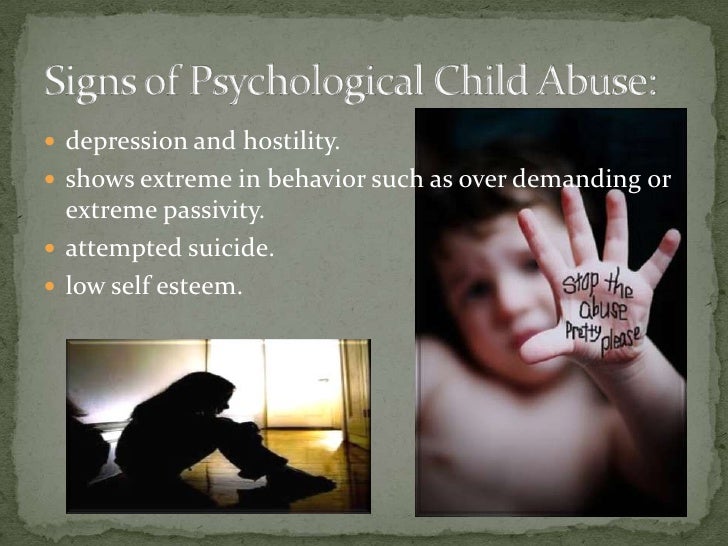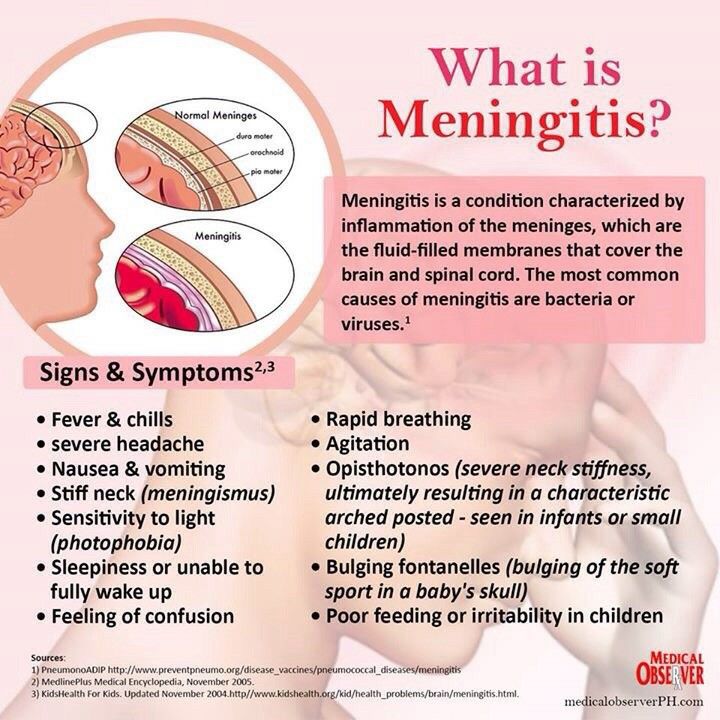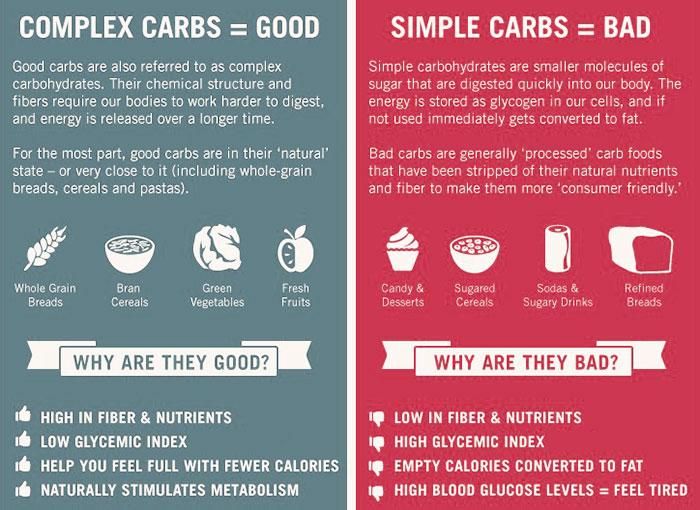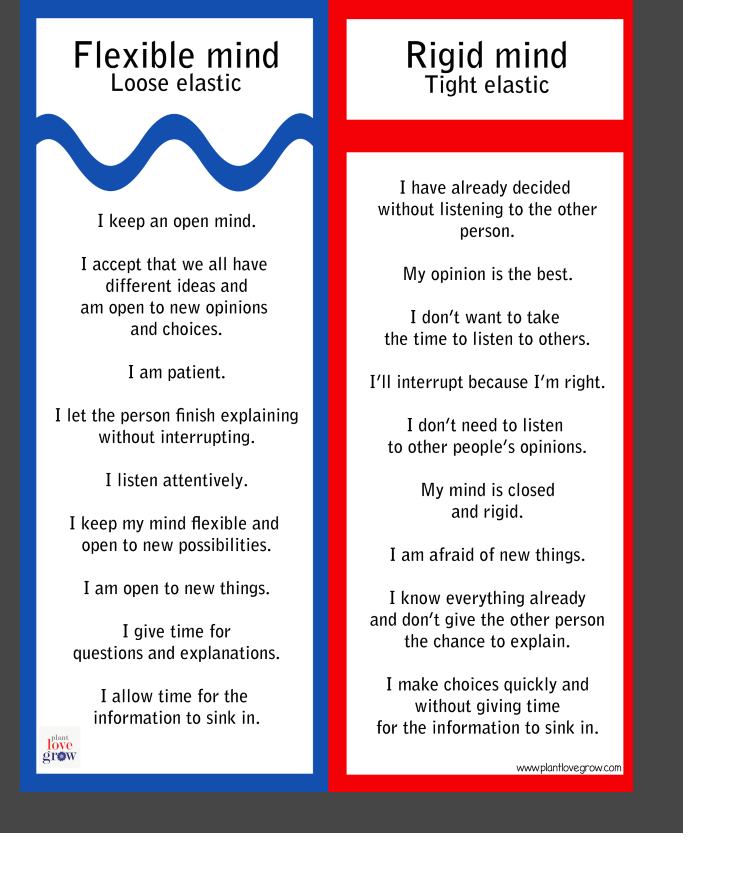Emotionally stuck at age of trauma
Emotionally Stuck at the Age of Trauma: Signs, Causes, and Healing
Some events can keep you emotionally stuck at the age of trauma. But as you begin to heal, it’s possible to get “unstuck.”
As you grow up, it’s common to use child-like coping methods to get your needs met. Temper tantrums, uncontrollable tears, and impulsive behaviors are all expected. As you get older, it’s typical to “outgrow” these behaviors, replacing them with more emotionally mature responses.
But experiencing trauma at an early age can disrupt your emotional growth. You might not outgrow child-like actions — instead, they may remain as coping methods, causing problems in your relationships, work-life, and even your sense of self.
With proper treatment and support, you can begin to understand the reasons behind your emotional responses and behaviors and move toward healing.
Traumatic events can overwhelm your body and mind, leaving a lasting mark on your mood, relationship, and sense of self long after the trauma has ended.
When trauma impairs your ability to develop full emotional maturity, this is known as arrested psychological development. Trauma can “freeze” your emotional response at the age you experienced it.
When you feel or act emotionally younger than your actual age, this is known as age regression.
Age regression means that, later in life, child-like behavior patterns can appear again when we feel unsafe or when we encounter triggers related to previous trauma — even if we’re unaware that we’ve been triggered.
“When an individual is traumatized, especially early on in life, the memory of the trauma is stored both in the brain and the body,” explains Carla Marie Manly, PhD, a clinical psychologist, trauma specialist, and author based in Sonoma, California. “As a result, if healing does not occur, the traumatic incident can impede healthy development.
“In essence, depending on the severity of the trauma, [your] entire way of being may be formed around the traumatic incident,” Manly adds.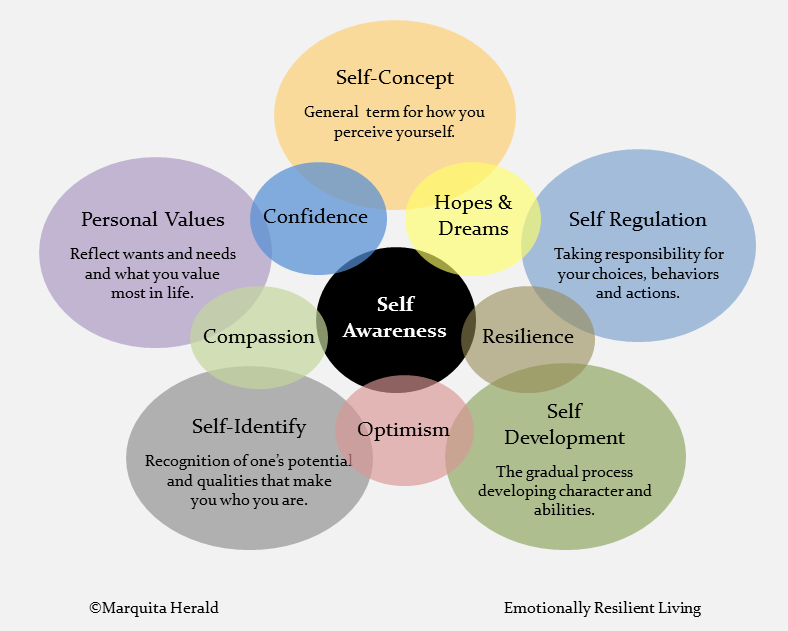
This is because, on a neurobiological level, the trauma is not properly processed. It can rewire your brain in such a way that ultimately influences your thought patterns and behavioral responses as you get older, she says.
According to 2015 research, age regression can happen in children and adults. A small-scale 2007 study notes that regression may be more common in younger adults than older adults.
Though many therapists and counselors believe that trauma can cause age regression and leave people stuck at a certain age, few research studies are looking into its validity and usefulness in trauma therapy.
When does trauma-related regression happen?
Trauma that affects your development can occur at any time during childhood. Examples of early life traumas include:
- abuse
- neglect
- accidents
- bullying
Melissa Lapides, a licensed marriage and family therapist, psychotherapist, and trauma specialist in California, explains age regression as a survival mechanism.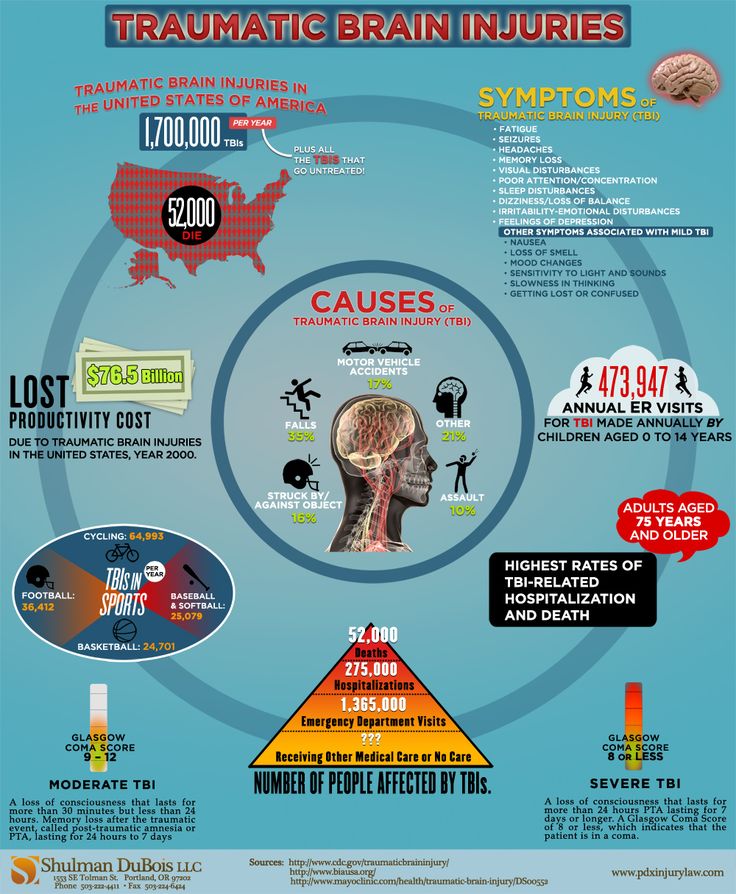 “Because it wasn’t safe for the body to process [at the time], the trapped emotions unconsciously dictate your behaviors and relationships unknowingly,” she says.
“Because it wasn’t safe for the body to process [at the time], the trapped emotions unconsciously dictate your behaviors and relationships unknowingly,” she says.
“It doesn’t necessarily make you stuck at a certain age, but instead, [you are] acting out the emotional wounding that happened at that age,” Lapides adds.
Trauma can cause anyone to get “stuck” in this way. It might occur in people with mental health issues related to trauma, such as:
- post-traumatic stress disorder (PTSD)
- dissociative identity disorder
- borderline personality disorder
- depression
The signs or symptoms that someone is emotionally stuck vary from person to person and can depend on how old you were when the trauma occurred and the nature of the trauma.
Behaviors associated with age regression could include adult temper tantrums, difficulty with impulse control, or overly clingy or dependent behavior.
Behaviors classed as regressive can also involve child-like comfort-seeking, such as:
- rocking
- pacing
- thumb-sucking
- needing a comfort toy
Still, these are not necessarily negative coping methods, and they can help many people feel comforted, safe, and loved.
Some general signs of unresolved trauma could include:
- fear-based behaviors, such as excessive anxiety or controlling behavior
- a tendency to shut down or dissociate
- people pleasing behavior
- knowing you want to do something in life, but feel like you can’t get there
- feeling easily emotionally overwhelmed
- difficulty maintaining close relationships
- unstable interpersonal relationships
What does trauma-associated age regression look like?
Examples include:
- Revisiting a childhood home, or visiting your parents, may activate child-like behaviors that were present at the age of trauma experienced when growing up.
- Children facing stressful situations, like major life changes, may start bed-wetting or thumb-sucking when they had previously outgrown those behaviors.
- Adults may respond to conflict by avoiding mature conversation topics that are complicated or stressful, even when it impacts their relationships.
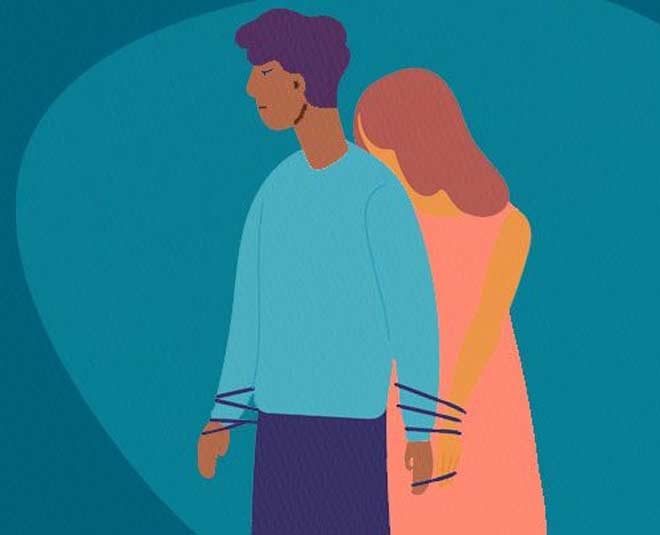
“Most people understand [trauma] as tragic, violent, or catastrophic incidents, like combat trauma or natural disasters,” says Claire Corey, PhD, a clinical psychologist and trauma specialist. She adds that trauma can come from events that weren’t registered as significant at the time, but they left a mark, nonetheless.
As well as one-off events, trauma can result from repeated events, like an abusive relationship or childhood neglect. Complex trauma — the kind that arises from repeated events — often stems from childhood experiences.
Every person’s response to trauma is unique — so an event that might cause one person to regress or get “stuck” might not impact someone else in the same way, even if they lived through similar experiences.
“You can have 10 people survive a small plane crash, and each person’s response to the traumatic event will be different based upon their history, genetics, and their actual experience of the traumatic event,” Manly explains.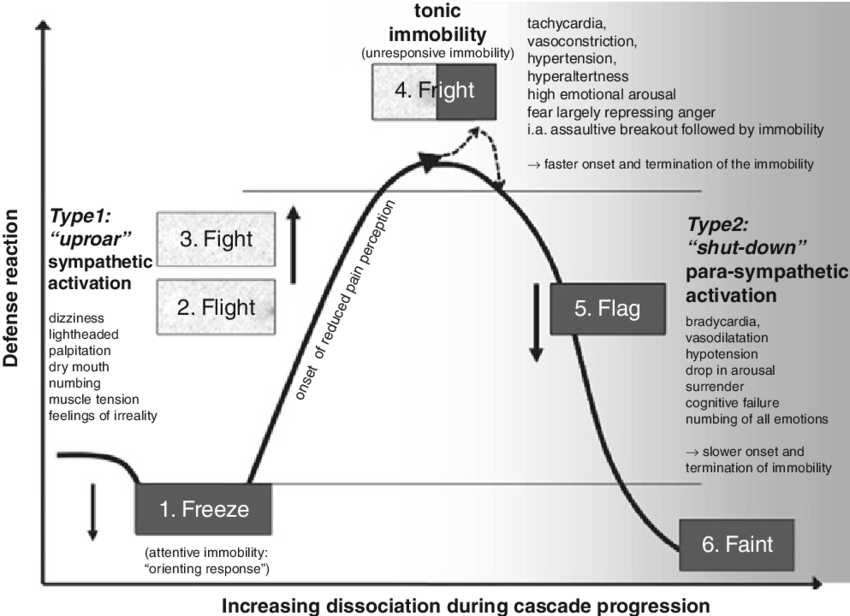
In other words, “trauma isn’t an event that happens. It’s how you process the event,” Lapides says. If you receive support or help while going through a traumatic event, the trauma is less likely to stick with you.
Some common causes of unresolved trauma Manly and Lapides have worked within clients include:
- abuse or neglect in childhood
- emotionally unavailable parents or caregivers
- bullying at school
- molestation or sexual assault
- auto accidents
- surviving natural disasters
- abusive work situations
- emotionally abusive relationships
With proper help from a licensed therapist, many people can integrate their traumatic experiences and become “unstuck.”
Becoming unstuck will mean different things to different people. For many, it may mean developing more mature emotional responses and relying less on unhelpful, child-like coping methods.
For example, if your trauma has resulted in adult temper tantrums to cope with conflict, becoming unstuck could mean you’re able to turn to more adaptive methods, such as:
- deep breathing
- self-compassion
- conflict resolution strategies
“I worked with many people who have healed from their trauma to remarkable degrees,” Manly says. “From veterans who go on to marry and enjoy connected, healthy relationships to victims of horrific childhood abuse, I have been fortunate to witness the progress of so many individuals who worked hard to become unstuck.”
“From veterans who go on to marry and enjoy connected, healthy relationships to victims of horrific childhood abuse, I have been fortunate to witness the progress of so many individuals who worked hard to become unstuck.”
According to the American Psychological Association (APA), specific therapies that can be especially effective for helping you heal from trauma, including:
- cognitive processing therapy (CPT)
- prolonged exposure (PE) therapy
- cognitive behavioral therapy (CBT)
- Eye Movement Desensitization and Reprocessing (EMDR) therapy
- narrative exposure therapy
- somatic therapies
- mindfulness-based therapies
If you think you’re emotionally stuck in your trauma, you might find relief by talking with a therapist or other mental health professional. You can find a therapist online or by using our Find a Therapist resource page.
Other helpful trauma resources include:
- The Substance Abuse and Mental Health (SAMHSA) National Helpline at 1-800-662-4357
- The National Child Traumatic Stress Network
Can you get stuck at a certain age?
When trauma impairs your ability to develop full emotional maturity, this is known as arrested psychological development. Trauma can “freeze” your emotional response at the age you experienced it. When you feel or act emotionally younger than your actual age, this is known as age regression.
Trauma can “freeze” your emotional response at the age you experienced it. When you feel or act emotionally younger than your actual age, this is known as age regression.
| View complete answer on tri-starcounseling.com
Does trauma make you stuck?
Feeling stuck in the past may suggest you're experiencing what we call traumatic stress symptoms. Most people who go through traumatic events have temporary difficulty adjusting and coping, but with time and support, they usually recover naturally.
Takedown request | View complete answer on ualberta.ca
How do you know if you're mentally stunted?
Because of that, it can be difficult to know for sure whether you are emotionally stunted, but there are a few tell tale signs.
...
Final Thoughts
- Act as though others should serve them.
- Think everything is about them.

- Fail to take responsibility for anything.
- Get defensive and argumentative over the smallest things.
| View complete answer on medium.com
Is being stuck in the past a mental illness?
For those who struggle with letting go of past pain or regret, they can feel trapped by their situation and unable to move forward in their lives. Feeling unable to let go of the past can lead to clinical depression, Post-Traumatic Stress Disorder (PTSD), or even suicide. Pain has a way of making us feel stuck.
Takedown request | View complete answer on psychcentral.com
Does trauma stunt maturity?
Conversely, trauma—abuse, neglect, exposure to violence, lack of attachment, and other adverse childhood experiences—affect the structure and chemistry of the brain and can stunt its natural growth and maturation. These negative experiences have an effect not only in childhood, but throughout life.
These negative experiences have an effect not only in childhood, but throughout life.
| View complete answer on multiplyingconnections.org
Childhood Trauma: At what age are you still stuck in time?
At what age is trauma most impactful?
Ages 5 through 8 identified as crucial period in brain development and exposure to stress.
Takedown request | View complete answer on parentmap.com
Is being childish a trauma response?
People sometimes revert to childlike behavior to cope with trauma, stress, severe illness, or mental health disorders.
| View complete answer on verywellhealth.com
How do you get out of a mentally stuck?
To reduce any extra stress and worry that can arise when feeling stuck in a rut, keep these in mind:
- Try not to over-identify with the situation. ...
- Don't beat yourself up. ...
- Don't focus on the stuck area as the only thing in your life. ...
- Try not to blame others. ...
- Don't doubt your ability to handle your decisions.
| View complete answer on betterup.com
Why can't I move on from my past?
Most people can't let go of the past because they don't appreciate their present. Reframing our relationship with our past requires us to stop thinking of how things should be and accept them for what they are. As Dalai Lama said, "Attachment is the origin, the root of suffering; hence it is the cause of suffering. "
"
| View complete answer on psychologytoday.com
Am I living in the past?
A big indicator that you might be living in the past is when you start to plan vengeful actions on those who've done you wrong. You dwell on their past offenses and feel bitterness for the things they did to you many years ago.
Takedown request | View complete answer on medium.com
Why am I immature for my age?
Many possible reasons point to why you might be holding onto immature behaviors, including being rewarded for being immature, being surrounded by other not-so-mature people, having an abusive upbringing, or not having mature role models while growing up, says clinical psychologist John E.
Takedown request | View complete answer on wellandgood.com
Does trauma age you?
Trauma was associated with biological aging in early puberty, cellular aging, and alterations in brain structure.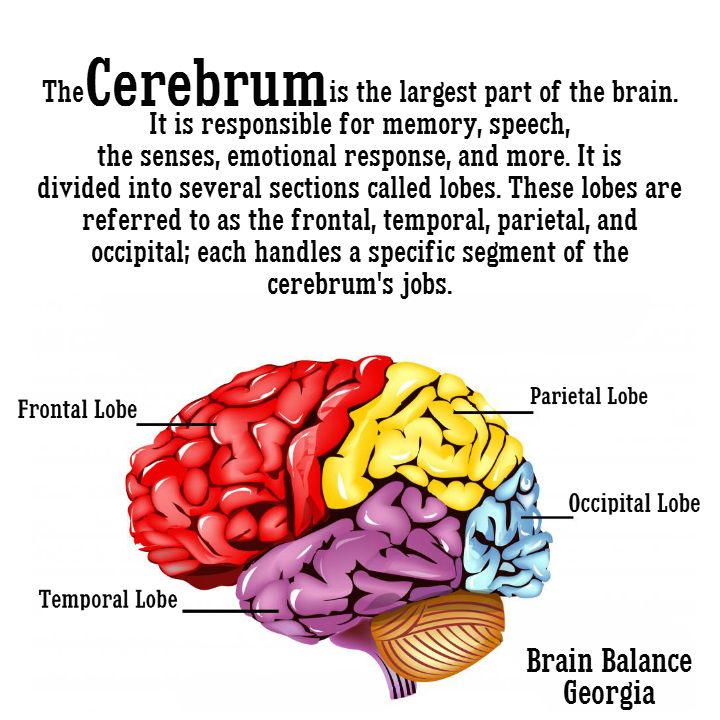 The findings may explain why children who experienced adversity early in life often suffer poor health as they age.
The findings may explain why children who experienced adversity early in life often suffer poor health as they age.
| View complete answer on neurosciencenews.com
What does trauma release feel like?
After practicing TRE® people often use the words 'grounded', 'relaxed' and 'calmer' to describe their feelings. After a period of several months people have reported relief from illnesses such as Arthritis, Fibromyalgia, Eczema and IBS.
Takedown request | View complete answer on osteopathyforall.co.uk
How can you tell if someone is severely traumatized?
This can include:
- panicking when reminded of the trauma.
- being easily upset or angry.
- extreme alertness, also sometimes called 'hypervigilance'
- disturbed sleep or a lack of sleep.
- irritability or aggressive behaviour.
- finding it hard to concentrate – including on simple or everyday tasks.
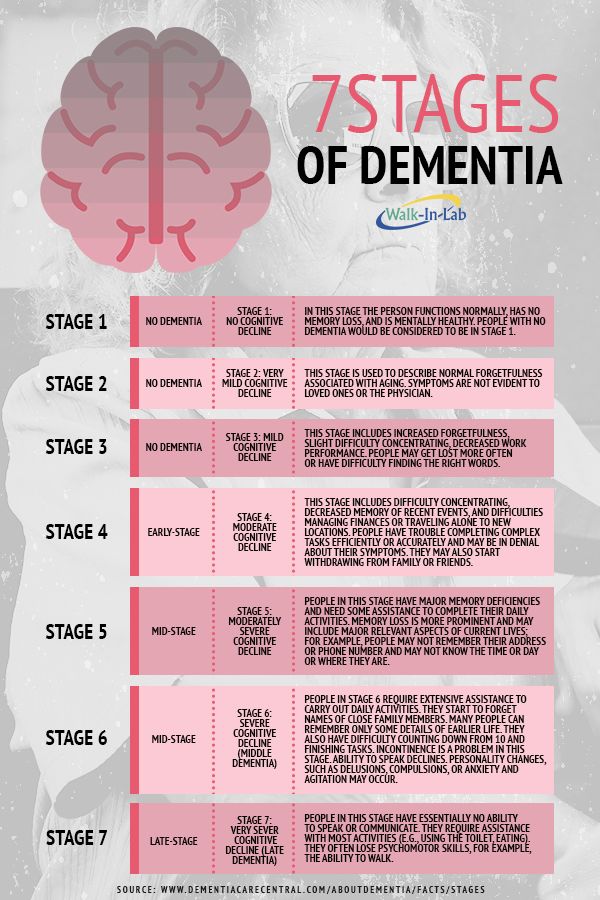
- being jumpy or easily startled.
| View complete answer on mind.org.uk
How do I know if I've been through trauma?
Suffering from severe fear, anxiety, or depression. Unable to form close, satisfying relationships. Experiencing terrifying memories, nightmares, or flashbacks. Avoiding more and more anything that reminds you of the trauma.
Takedown request | View complete answer on helpguide.org
Does your mind block out trauma?
The brain will sometimes hide particularly stressful, traumatic or fear-related memories. This can be protective in the short term, when the emotional pain of recalling the event is still profound.
Takedown request | View complete answer on nm.org
How do I let go of past forever?
The author of this answer has requested the removal of this content.
| View complete answer on healthline.com
Why does my past still affect me?
When we are not living in the moment, we are reliving the past—or fearful of what might happen in the future. Our experiences also shape our beliefs about ourselves. We like to feel like we're in control… So when something happens that's outside of our control, it's often easier to blame ourselves.
Takedown request | View complete answer on screening.mhanational.org
Is it possible to not be able to move on?
So yes, it's entirely possible to never get over someone "if you don't begin to take time out to have therapy and understand what you're doing and how you're feeling," Mutanda says. Spending time alone and 'dating' yourself is so important after a relationship. You need time to be you again, she says.
Takedown request | View complete answer on refinery29. com
com
Does anxiety make you stuck?
Anxiety can keep you feeling trapped — and once you feel this way, it's difficult to know how or if you can ever feel better. If you suffer from anxiety, take heart. Studies show that simple anxiety-reducing habits can go a long way toward improving how you feel.
Takedown request | View complete answer on mentalhealthsf.org
Why do people get emotionally stuck?
Anyone can become emotionally stuck as a result of traumas they experienced or parenting they received. Regardless of the root cause; being emotionally stuck will affect every area of your life including: relationships, physical health, mental health, your career and your finances.
Takedown request | View complete answer on drevamalanowski.com
What does it mean to be psychologically stuck?
When you're stuck in your mind, you're withdrawn from reality. You're in the universe inside your head, which is often a highly pessimistic place, rather than engaging with people around you or focusing on the present moment.
You're in the universe inside your head, which is often a highly pessimistic place, rather than engaging with people around you or focusing on the present moment.
| View complete answer on recoveryranch.com
How do you know if you were traumatized as a child?
You might have difficulties trusting, low self-esteem, fears of being judged, constant attempts to please, outbursts of frustration, or social anxiety symptoms that won't let up. Can childhood trauma be healed?
Takedown request | View complete answer on miace.org
Does childhood trauma lower IQ?
There were significant differences in the impact of childhood trauma on IQ across the 3 groups. Exposure in HCS was associated with a nearly 5-point reduction in IQ (−4.85; 95% confidence interval [CI]: −7.98 to −1.73, P = . 002), a lesser reduction in siblings (−2.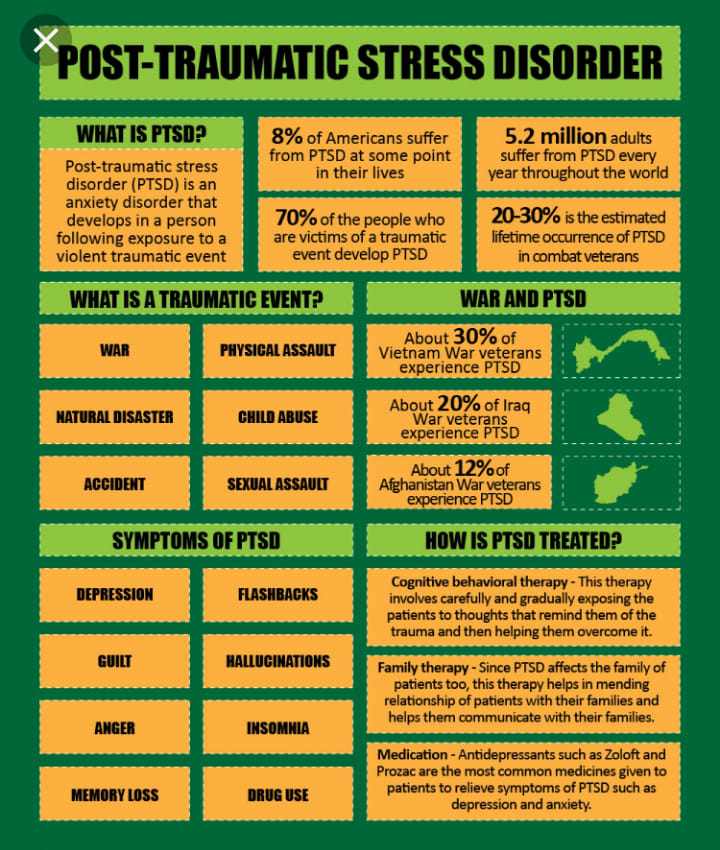 58; 95% CI: −4.69 to −0.46, P = .
58; 95% CI: −4.69 to −0.46, P = .
| View complete answer on ncbi.nlm.nih.gov
Is being too nice a trauma response?
Fawning or people-pleasing can often be traced back to an event or series of events that caused a person to experience PTSD, more specifically Complex PTSD, or C-PTSD. Fortunately, C-PTSD can be approached and treated through comprehensive therapy.
Takedown request | View complete answer on khironclinics.com
← Previous question
What poor gut health looks like?
Next question →
What are the 5 parts of mental health?
Emotional stuck at the age - 2 councils of psychologists, consultations
Alexandra 09/28/2017
Hello!
I am 23 years old and I have a problem of getting stuck in age, it seems to be the age of 13-14 years.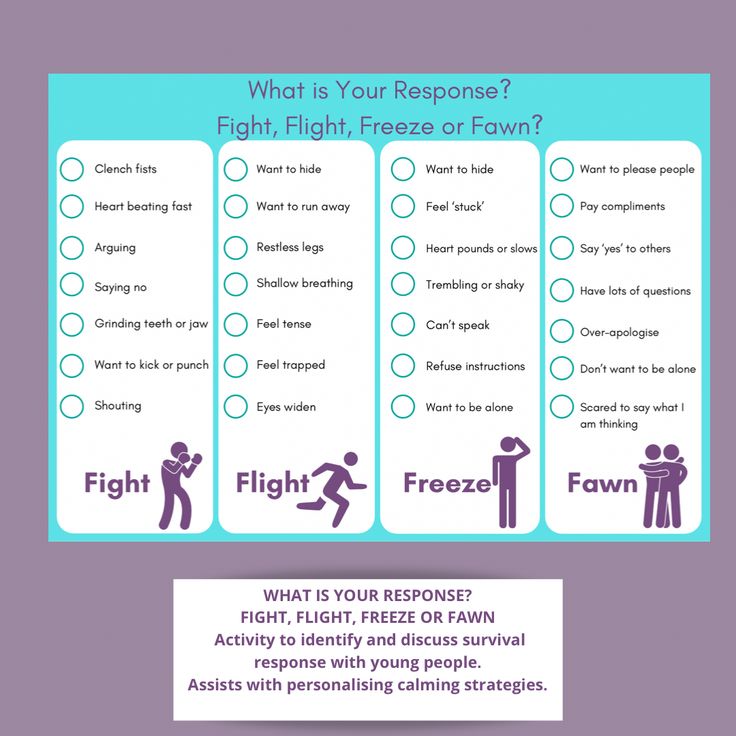 A year ago, I visited a psychologist for a completely different problem - I was afraid of men. We worked with a psychologist mainly on the relationship with my father. Now I feel much better, but I realized another problem, which she also noticed. The psychologist noted that I am at an age where conflicts with my father remain, and I do not look at all at 23, there is no femininity in me. But we were working on another problem and I didn't focus on the next one. But at the moment I clearly realized that this problem exists and it prevents me from living! Periods, I really begin to emotionally feel like a little girl, I can’t track at what moments this happens, but it happens often. I start to feel defenseless, insecure, unattractive, downtrodden girl. I feel so mentally and outwardly too.
A year ago, I visited a psychologist for a completely different problem - I was afraid of men. We worked with a psychologist mainly on the relationship with my father. Now I feel much better, but I realized another problem, which she also noticed. The psychologist noted that I am at an age where conflicts with my father remain, and I do not look at all at 23, there is no femininity in me. But we were working on another problem and I didn't focus on the next one. But at the moment I clearly realized that this problem exists and it prevents me from living! Periods, I really begin to emotionally feel like a little girl, I can’t track at what moments this happens, but it happens often. I start to feel defenseless, insecure, unattractive, downtrodden girl. I feel so mentally and outwardly too.
I can say that I always feel this way when I come to my hometown to visit my parents (my father died when I was 14, now my mother and grandmother are left), or I feel this way when I talk to my mother on the phone. Now I have even reduced communication with her, although she is very offended and thus puts pressure on me. As a child, my relationship with my father until the age of 11-12 was terrible, I was afraid of him, although he never raised his hand to me. He was quite quick-tempered and it scared me, as a child he could yell at me because I couldn’t do my homework because I didn’t understand him, he could throw phrases that I was stupid and it would be better if they didn’t give birth to me. At the age of 12, relations with him changed, there was no communication between us, but there was some kind of connection, I understood that he understood me, I began to understand that my character was similar to the character of my father and that I was as quick-tempered as he.
Now I have even reduced communication with her, although she is very offended and thus puts pressure on me. As a child, my relationship with my father until the age of 11-12 was terrible, I was afraid of him, although he never raised his hand to me. He was quite quick-tempered and it scared me, as a child he could yell at me because I couldn’t do my homework because I didn’t understand him, he could throw phrases that I was stupid and it would be better if they didn’t give birth to me. At the age of 12, relations with him changed, there was no communication between us, but there was some kind of connection, I understood that he understood me, I began to understand that my character was similar to the character of my father and that I was as quick-tempered as he.
My relationship with my mother was normal until the age of 11-12. I don't remember anything in particular. I only remember that there were periods when she turned a very small me (4-5 years old) against my father, and at 10 years old against my grandmother.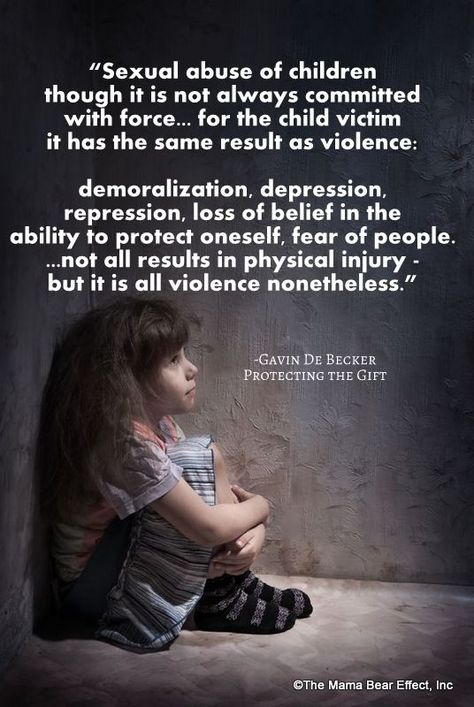 She has always been a victim. Then I became a little older and my relationship with her did not go well, I never perceived her, I always did what I wanted. After the death of my father, the relationship deteriorated completely because I tried to support her during this period, but no one supported me. Mom quickly moved away and after a couple of months she tried to find a man for herself, it drove me crazy, but I knew that she needed it and endured it. A couple of months later, she moved away from me, leaving me with my grandmother. At the age of 17, I went to another city to study and stayed there. Relations with my mother became normal, we understand that we do not understand each other, but we began to accept this and try not to quarrel. However, now I understand that I don’t remember my parents at all as a child, I always played by myself, because no one played with me, and my parents thought that I was just a quiet and problem-free child and did not touch me. No one spoke to me, in general, in our family there was always silence, no dialogues, no discussions.
She has always been a victim. Then I became a little older and my relationship with her did not go well, I never perceived her, I always did what I wanted. After the death of my father, the relationship deteriorated completely because I tried to support her during this period, but no one supported me. Mom quickly moved away and after a couple of months she tried to find a man for herself, it drove me crazy, but I knew that she needed it and endured it. A couple of months later, she moved away from me, leaving me with my grandmother. At the age of 17, I went to another city to study and stayed there. Relations with my mother became normal, we understand that we do not understand each other, but we began to accept this and try not to quarrel. However, now I understand that I don’t remember my parents at all as a child, I always played by myself, because no one played with me, and my parents thought that I was just a quiet and problem-free child and did not touch me. No one spoke to me, in general, in our family there was always silence, no dialogues, no discussions.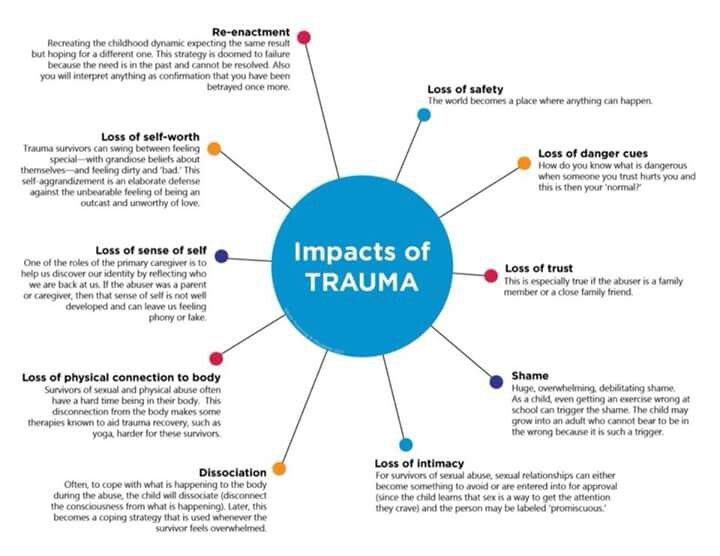 Everyone sat silently on TV. I think because of this I have problems with communications, I really like to chat, but I don’t seem to know how to do it.
Everyone sat silently on TV. I think because of this I have problems with communications, I really like to chat, but I don’t seem to know how to do it.
I also noticed that my mother has been giving me doubts all my life. I wanted to go to study in the Czech Republic, my mother says - well, I don’t know if you can do it there. I finally bought lipstick at the age of 23, red! Mom will say - oh, and who do you look like with her? Does she even suit you?
It was the same in childhood. I want to go play football - oh well, I don’t know, but isn’t it scary to break your knees? And everything like that.
I don't know what exactly influenced my being stuck in childhood, but it bothers me, I want to get out of this state, to feel like a girl, a woman, but I don't know where to start. I have low self-esteem, I do not feel attractive to men, I have problems with my personal life, and so on.
At the moment I don't have the opportunity to see a psychologist personally and I would like to do something myself before this opportunity.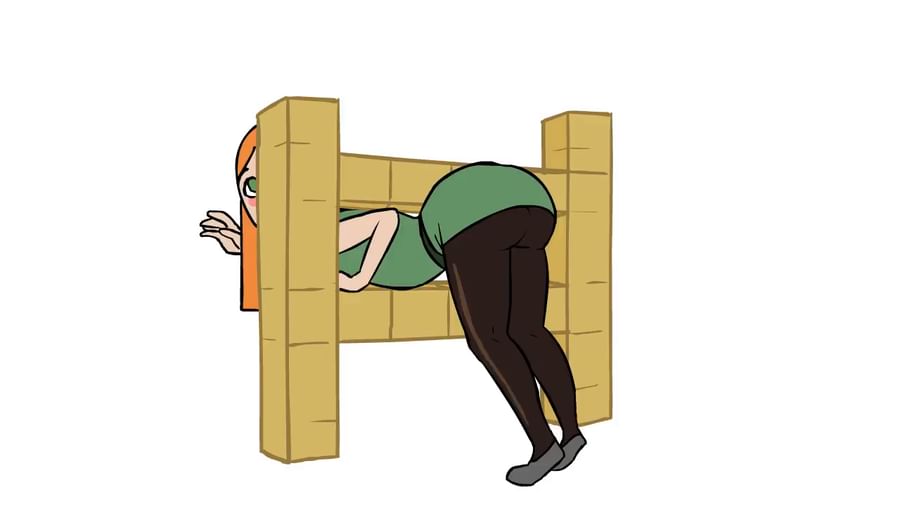 Maybe there are some practices, suggestions? Or what can be read on the subject?
Maybe there are some practices, suggestions? Or what can be read on the subject?
Similar question
Emotional stuckness in adolescence (1 answer)
Hello Alexandra.
Judging by the letter, you have come a long way, analyzing your childhood and relationships with your parents, but there is still much to be done to separate from your mother, stop emotionally reacting to her comments and grow up.
What you think. stuck at the age of 13-14, apparently, it says that you did not have the resource for teenage rebellion and separation from your parents. Something that should have been formed in childhood has not been formed, you have not received a supply of warmth from your parents, apparently. But now you have grown up, got an education, live separately from your parents. Now your task is to finish for yourself what your parents did not give you.
Try to imagine yourself as a child, during those periods when you were sad and lonely. Imagine as fully as you can, remember what toys you played with, what clothes you wore, how you experienced resentment or loneliness, or maybe other unpleasant emotions. Remembered? Imagine what this little girl wants, what words she wants to hear? Or it should not be words, but touches. Mentally talk to that baby, console her, tell her that she will grow up, she will have friends. She will go to live in another city.
Imagine as fully as you can, remember what toys you played with, what clothes you wore, how you experienced resentment or loneliness, or maybe other unpleasant emotions. Remembered? Imagine what this little girl wants, what words she wants to hear? Or it should not be words, but touches. Mentally talk to that baby, console her, tell her that she will grow up, she will have friends. She will go to live in another city.
Go through the different ages in this way, up to 13-14 years old. Pay special attention to adolescence. Take your time, do not try to do everything at once, you will have to repeatedly meet with your little one.
Of course, it would be better to do this accompanied by a psychologist, especially since there are many of them in your wonderful city. But you can try it yourself to get started.
Yours faithfully
Kononova Larisa Ivanovna, psychologist Biysk
Similar question
Stuck in adolescence (1 answer)
Hello Alexandra!
You are mostly in the "inner child" state. What brings you there? What's stopping you from becoming an adult? How, finally, psychologically mature? It is unlikely that you will be able to answer these questions for yourself. You need someone who can see the situation from the outside and help you deal with your internal problems. Therefore, you can work effectively with them only with a psychologist
What brings you there? What's stopping you from becoming an adult? How, finally, psychologically mature? It is unlikely that you will be able to answer these questions for yourself. You need someone who can see the situation from the outside and help you deal with your internal problems. Therefore, you can work effectively with them only with a psychologist
You are stuck at that age. when your dad died and your family stopped being complete. What keeps you at that age? This is also a topic for research.
Alexandra
I have low self-esteem, I don't feel attractive to men, I have problems with my personal life, etc.
This is another tangle of problems that must be gradually unraveled. Relationship problems with dad prevented you from revealing your femininity. So, you will have to open it yourself now. Teach you in writing how to do it. impossible.
Dislike in childhood influenced the formation of low self-esteem. Now you will have to please yourself for your parents if you do not want to feel like a "victim" in life, like a mother.
Read Liz Bourbeau's Five Traumas, but you won't get well just reading books. They help to realize something, and it is necessary to work, first of all, with feelings and internal attitudes.
Read my article - My right dad .... You have worked a lot with the topic of dad, but perhaps in this article you will find something useful for yourself. If you're ready to work, get in touch.
Stolyarova Marina Valentinovna, counseling psychologist, St. Petersburg
Similar question
My mother is in conflict with children aged 10-12, before and after this age the relationship is even (1 answer)
Tips by categoryMoneyChildren---Pregnancy and childbirth---Preschoolers---Teens---Schoolchildren---Addictions---Alcoholic---Love---Drugs---Nicotine Health---Healthy lifestyle---Oncology- ---PsychosomaticsInteresting---Art---Fulfillment of desires---Society---ReligionsBeauty and appearance---Rules for weight lossCrises---Age crises---Crisis in the family---Personal crisis About death---Suicidal behaviorRecreationRelationships- --- Friendship---Conflicts and quarrels---Love---LonelinessEating behavior---Anorexia---BulimiaPsychology and psychologistsWork, business, career---Choice of profession---Conflicts at workSelf-knowledge---Goal setting-- -Self-EsteemSexFamily---Adult children and parents---Cheating---DivorceSleep and dreamsFears and phobias---Panic attacks---Anxiety, anxious statesStress and depression---Psychological traumaEmotions and feelingsI and psychologist---How to choose a psychologistOther
See also
The problem is the big age difference. 2086 1 answer
2086 1 answer
How can I be in this situation? Age difference 2787 1 answer
How to behave to create a relationship? 1103 1 answer
How to survive a breakup? 909 1 answer
All advice from psychologists
Ask a psychologist a question
"When the past did not become the past"
Headings : Latest articles, Psi-reviews, Psychology
Did you find something useful here? Help us stay free, independent, and free by making any donation or purchasing some of our literary merchandise.
Whatever psychological problem is, it often relates in one way or another to either internal conflict or trauma.
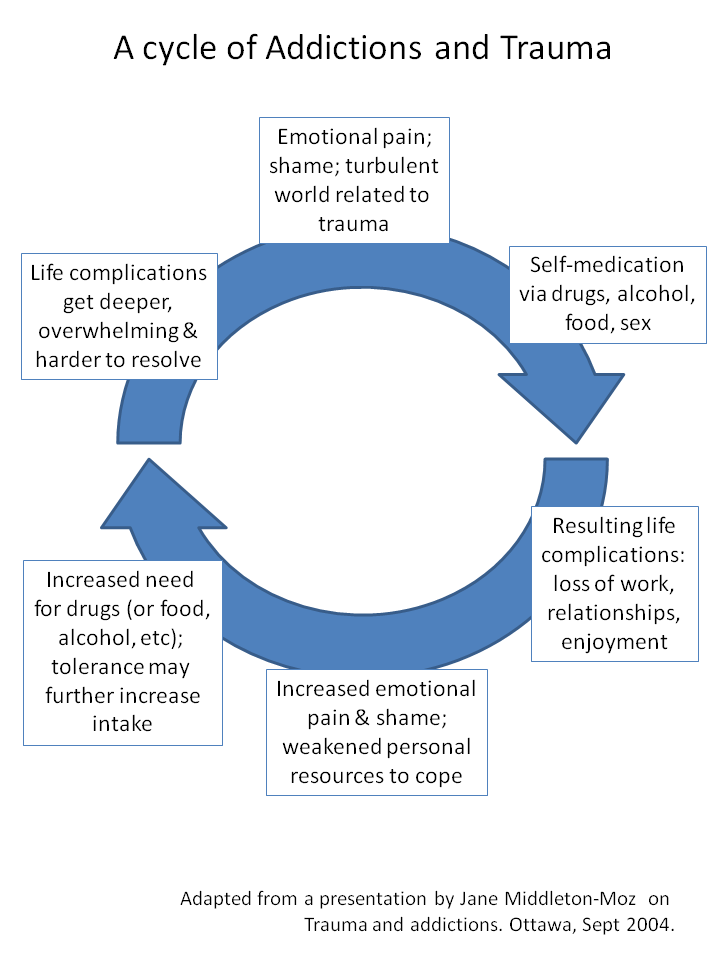 But what is psychological trauma? How is it formed, what does it consist of, and how much does it affect our relationships with others? And finally, why do we unconsciously repeat in our lives and play out traumatic experiences in various forms? Psychologist Anastasia Zverko tells.
But what is psychological trauma? How is it formed, what does it consist of, and how much does it affect our relationships with others? And finally, why do we unconsciously repeat in our lives and play out traumatic experiences in various forms? Psychologist Anastasia Zverko tells. "The grass pattern defines the contours of the 'future campfires'. … “the pattern of trauma determines the pattern of the future.”
Arkady Dragomoshchenko, Chinese Sun
Psychological trauma is a complex phenomenon affecting many areas of the human personality (psychological, physical and sexual maturity, memory, libido, childhood, adulthood, affect, reaction, pleasure, pain, violence, frustration, acceptance and rejection, love, fear), and also some philosophical categories, such as, for example, intersubjectivity and temporality, questions of life and finiteness of being.
Many definitions of psychotrauma can be found in the literature. One of the most illustrative, understandable and, oddly enough, concise, is the definition of an American psychoanalyst, Robert Stolorow
"Trauma - the experience of an unbearable affect"
This definition will help us get closer to understanding the essence of the phenomenon under study.
Let's turn to its terms, starting with the word "affect" .
Many people are familiar with this term from Russian criminal law (Murder committed in a state of passion - Article 107 of the Criminal Code of the Russian Federation). Not pretending to be lyrical and beautiful, the criminal law defines affect as “a state of sudden strong emotional excitement ...”, which is extremely close to the translation of this word from Latin into Russian:
affectus (lat.) - emotional excitement, passion
In addition, in this sense, the definition coincides with one of the interpretations of the concept in psychology: “Affect is a strong and short manifestation of emotion associated with an unexpected and abrupt change in vital circumstances” ⓘCit. Zhmurov V.A. Psychopathology . Part I. Irkutsk University Publishing House., 1994.
It is important that we are talking not just about a feeling or emotion, but about an emotional process characterized by short duration and high intensity of experiences.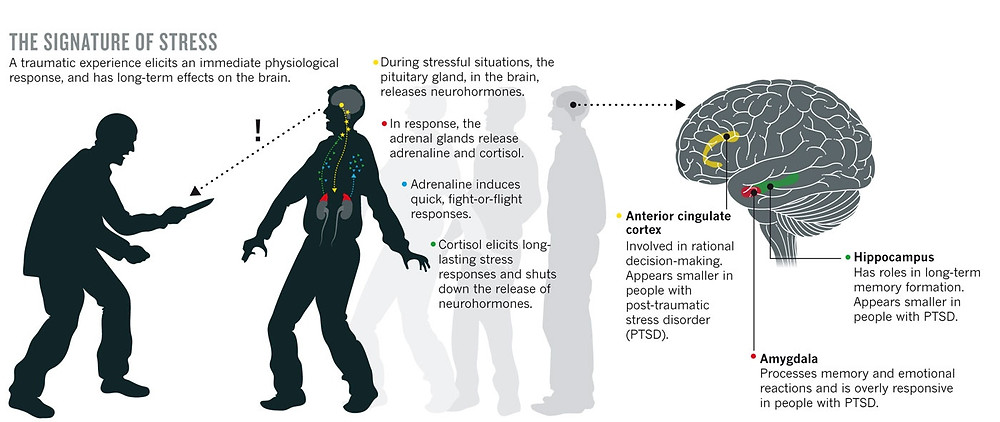 However, this is not enough: not every affect becomes the foundation of psychological trauma.
However, this is not enough: not every affect becomes the foundation of psychological trauma.
Intolerance is the second term in Robert Stolorow's definition of trauma.
Intolerance - the inability to endure, endure, cope, influence. As if it were a heavy burden or severe pain. The pain is so severe that pain medication is required. The burden is so heavy that one cannot carry it alone.
Intolerance is a reaction, property, quality, a consequence of some influence. You can draw an analogy with a physical injury, for example, a fracture. The bone tissue is damaged, it hurts to step on the foot, it is impossible to walk.
Our body, like the psyche, is programmed in such a way that it has the property of self-healing. A broken bone, at the very least, will heal. Also, the psyche will try to heal the consequences of an unbearable affect, but with the help of other tools. Based on this analogy, we can say that an untreated psychotrauma is similar to an improperly healed fracture - ok, perhaps a person will not lose the ability to walk, but will experience pain and discomfort when walking.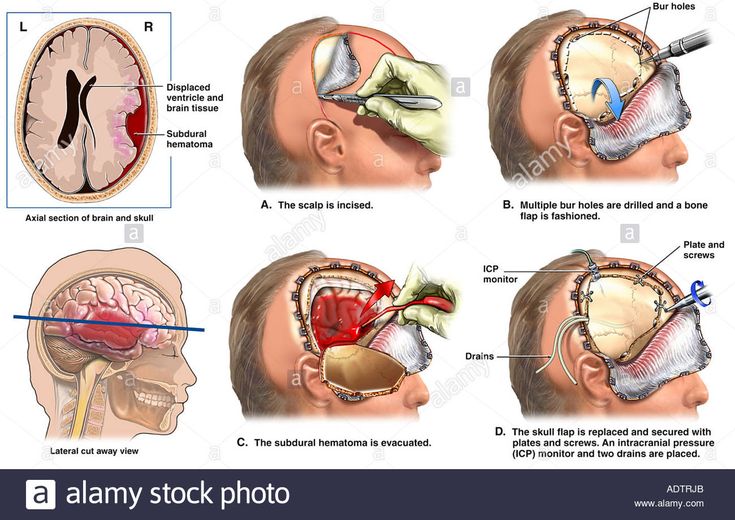 It is the same in a situation with trauma - the psychological “fracture” will grow together, but will cause pain and inconvenience when a person lives his life.
It is the same in a situation with trauma - the psychological “fracture” will grow together, but will cause pain and inconvenience when a person lives his life.
However, in the above example, an important component remains undisclosed - that which precedes intolerance. You can round it up to the word "event" . An event that generates an intolerable affect.
American psychoanalyst Donald Kalsched describes intolerance as follows:
"(As a result of some event) A person is bombarded with a volume of impressions that greatly exceeds our ability to consciously experience."
We smoothly approached the third term from Stolorow's definition - "experience" .
Here we are talking not about a noun, but about a verb. Experience as a process, since mental processes are characterized by their continuity, continuity. Experiencing, the psyche tries to heal what hurts, to patch up where there is a gap.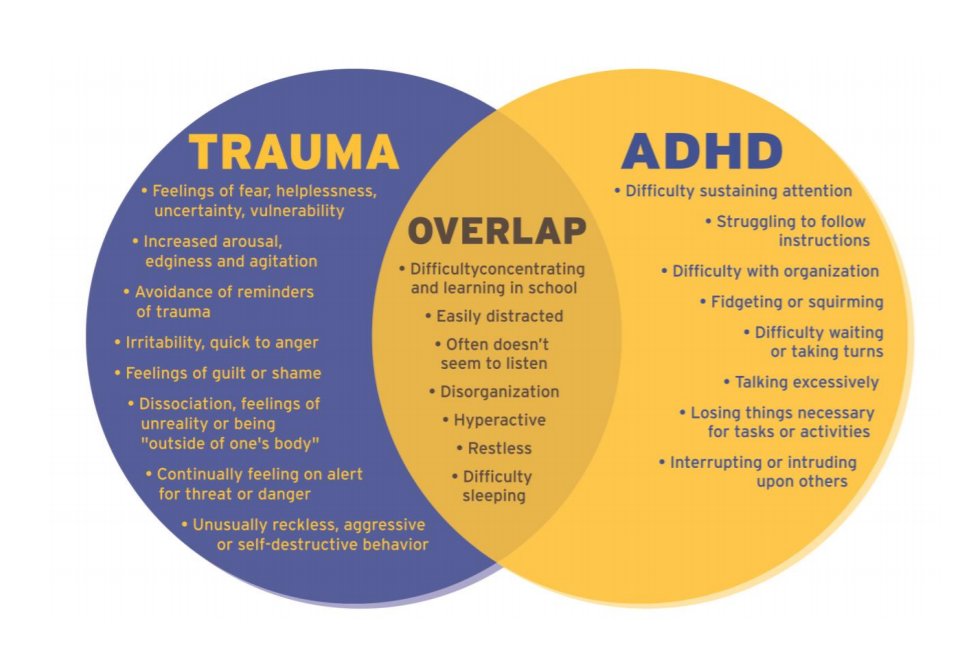 It is so important for us to understand the experience as a process, since the experience is the essence of the mechanism of psychological trauma, just as there is a mechanism of grief. However, unlike the mechanism of grief, the mechanism of psychological trauma is more bizarre, absurd and uncontrollable. This strangeness can manifest itself in the fact that a person, as if absolutely by chance, without wanting it and without making volitional efforts, involuntarily begins to get into situations that are directly related to his injury.
It is so important for us to understand the experience as a process, since the experience is the essence of the mechanism of psychological trauma, just as there is a mechanism of grief. However, unlike the mechanism of grief, the mechanism of psychological trauma is more bizarre, absurd and uncontrollable. This strangeness can manifest itself in the fact that a person, as if absolutely by chance, without wanting it and without making volitional efforts, involuntarily begins to get into situations that are directly related to his injury.
“I wonder how often a necrophile meets death, a drunkard a bottle, a gambler the cards”ⓘGabriel Wittkop, Necrophile.
Nevertheless, just like the work of mourning, the work of psychotrauma performs the same task - it protects the person and his psyche, helping to cope with the unbearable.
What makes pain an injury?
Not every fragment of the painful human experience mentioned above becomes a psychotrauma.
Robert Stolorow writes that pain becomes trauma due to the lack of an "emotional haven", that is, due to the lack of a specific intersubjective context within which experiences can be retained and integrated.
By emotional shelter, Stolorow means the presence of relationships that make it possible to express these experiences through speech, language, the ability to verbally voice them, to speak, to live through speech, to receive understanding, acceptance, support, help. The term "intersubjective" means the presence of another person (or others), in a situation of psychotrauma - the presence of a special kind, where the injured person will be accepted, heard, where he can receive care and support.
To better understand Stolorow's idea, let's turn to the concept of intersubjectivity, as well as one of the popular theories of personality development.
Let's start with the theory of object relations - this is one of the main psychoanalytic concepts of personality development.
According to this theory, there is a certain core that is formed in the child's psyche depending on the information that he receives (introjects) from the adult raising him.
In a certain sense, this idea coincides with the concept of intersubjectivity of the German philosopher Edmund Husserl, where a person already at the moment of birth gets into relationships with people, and his entire future life cannot be separated from the world of Others. He cannot exist as a “naked” subject, which is clearly seen in the example of the early years of a child’s life: the child cannot take care of himself, in the absence of the intersubjective context necessary to satisfy his vital needs, he simply will not survive, he will die. A person needs the presence of another person.
At a very early age, the child feels, experiences, needs, but does not yet know anything about it. He learns about himself and his needs through feedback from nurturing adults who meet those needs. A child may feel hungry, but not know what it is. He learns about this with the help of his parents who feed him, frustration will be replaced by a sense of satisfaction. Through such seemingly simple things, a person learns to recognize himself, and this becomes possible only if there is feedback congruent (corresponding) to his needs from the world (read - from educating adults).
A child may feel hungry, but not know what it is. He learns about this with the help of his parents who feed him, frustration will be replaced by a sense of satisfaction. Through such seemingly simple things, a person learns to recognize himself, and this becomes possible only if there is feedback congruent (corresponding) to his needs from the world (read - from educating adults).
But the child's needs go far beyond the vital (vital - food and sleep). Nurturing adults also meet his emotional and mental needs. Everyone knows examples when mom or dad start talking to a baby in his childish, almost wordless language - this is a clear example of emotional attunement. This is what the child needs, through which he recognizes himself, gets acquainted with his feelings. With the help of feelings, the child learns to respond to various stimuli that are inside and outside of him, which becomes the key to his physical and psychological safety.
The emotional possibilities of a child and an adult are different. What does not pose a psychological danger to an adult may be critically unsafe for a child. To a conventional adult, a child's mental pain may seem insignificant or insignificant in comparison with the pain of adults. But precisely in order for this pain to be lived, and not preserved, it is very important for an adult not to devalue it (“why are you crying, you have not seen life yet, but you are crying as if you are in grief”). It is important that the adult recognizes the truth of the child's experience and shares this experience with the child. This is the main characteristic of the intersubjective context, the emotional haven that Stolorow writes about.
What does not pose a psychological danger to an adult may be critically unsafe for a child. To a conventional adult, a child's mental pain may seem insignificant or insignificant in comparison with the pain of adults. But precisely in order for this pain to be lived, and not preserved, it is very important for an adult not to devalue it (“why are you crying, you have not seen life yet, but you are crying as if you are in grief”). It is important that the adult recognizes the truth of the child's experience and shares this experience with the child. This is the main characteristic of the intersubjective context, the emotional haven that Stolorow writes about.
Through this relationship, the child will be able to learn how safe what is happening to him. If the responses of adults are not consonant with the central affective states of the child, and this state of affairs is stable and / or intense, a psychological conflict arises and develops, putting the psychological and physical safety of the child at risk.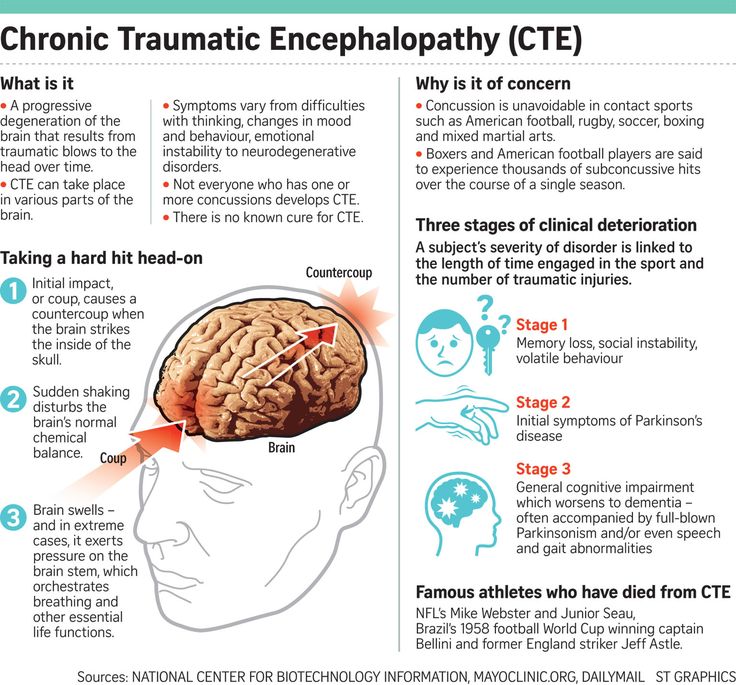 Stolorow believes that the absence of stable consonant responses to affective states of the child leads to significant deviations from the optimal integration of affects, as well as a tendency to dissociate or deny affective reactions.
Stolorow believes that the absence of stable consonant responses to affective states of the child leads to significant deviations from the optimal integration of affects, as well as a tendency to dissociate or deny affective reactions.
Read also "Hatred and Containerization": Patrick Casement on Overcoming Destructiveness
Time and memory
Among others, psychotrauma exists in the plane of time and memory.
How is it that a situation that happened to a person, for example, when he was four years old, continues to be present in his life as if it happened yesterday? How it works?
Memory is the central space in which the mental life of a person unfolds.
The German philosopher Martin Heidegger says that Dasein ⓘThe concept of Dasein introduced by Heideger means “being-in-itself”, “here-being”. "exists", remembering. This means that a person, with all his multimodality and multicontextuality of being, exists - is present in the world in a special way, in which only a person and no one but a person can be present.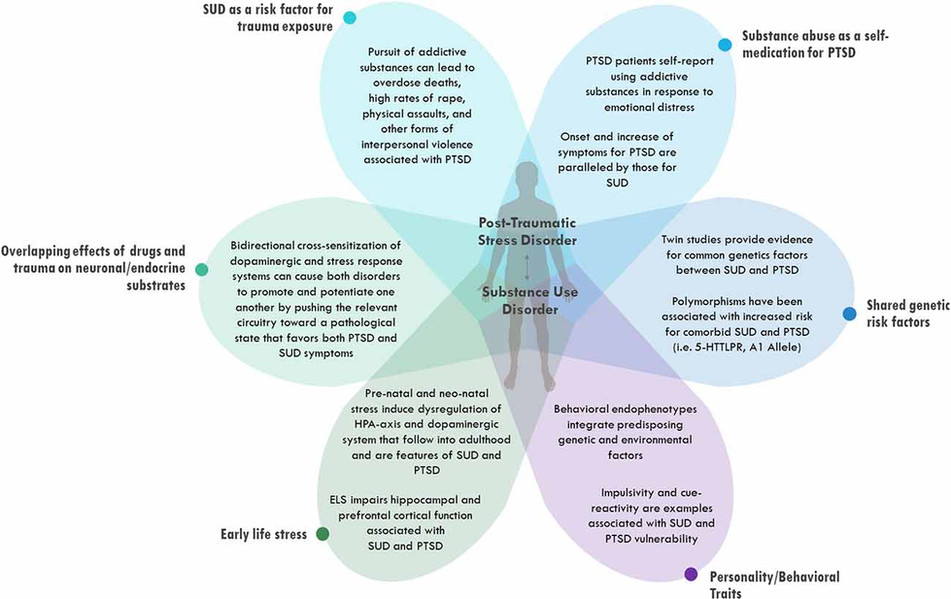 This is made possible by memory.
This is made possible by memory.
Also read/see
— Video lecture: the philosophy of Martin Heidegger in six lectures
- "Something is finally bothering you": Dasein Analysis and the Syrian Mystics
In one of his early works, Freud writes that psychotherapy as such began with the question of memory. In a situation of psychotrauma, our memory remembered the way in which a person reacted to traumatic circumstances, perceived it as such a way by which a person could survive, survive. Instead of a new action, there is an obsessive repetition of what has been lived in various modes. Getting into situations of the traumatic register, a person for some reason begins to act and react in this way, and not otherwise.
Considering the phenomenon of psychological trauma from the point of view of temporality, we can say that trauma is the past that has not become the past. She remains to live in a distant or not very time period, interfering with the usual course of time, in the natural course of life. Traumatic experience, with the help of the continuity of mental processes, continually gets into our present and highlights our future, like a searchlight beam.
Traumatic experience, with the help of the continuity of mental processes, continually gets into our present and highlights our future, like a searchlight beam.
Sometimes psychological trauma is called a "split of time": as a result of a traumatic event, the world, as it were, splits into before and after.
The already mentioned Edmund Husserl, the founder of the phenomenological current of philosophy, studied the category of time for a long time. So, Husserl thinks that the point “now”, the experience of the present always has “thickness”, that is, it always contains both the past and the future. Accordingly, the moment "now" simultaneously preserves the past and anticipates the future. Life experience always exists in all three dimensions of time at once. Heidegger calls our being "the stretch between birth ( past ) and death ( future )". Stolorow believes that trauma is a gap between the unity of time, the stretch between past and future. The experience of trauma is like a freeze frame, a trap of time to which a person is doomed to return through a "portal" opened by the blows of fate.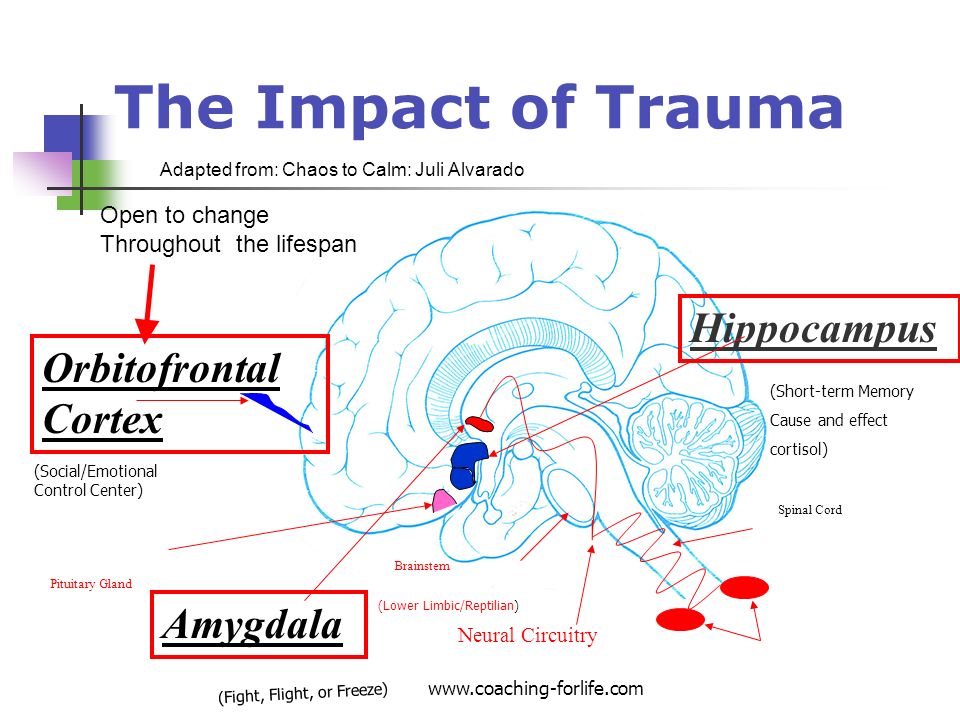 The past becomes the present, and the future, interdependent on such a present, loses all meaning, except for one thing - endless repetition (remember the freeze frame).
The past becomes the present, and the future, interdependent on such a present, loses all meaning, except for one thing - endless repetition (remember the freeze frame).
This is one of the most illustrative concepts of the interdependence of the future, present and past, which, among other things, illustrates the expression familiar to many that all problems come from childhood.
Is it possible to live and not have a single psychological trauma?
Appears not to be.
There is an opinion that the very first psychological trauma occurs in a person at the moment of birth. If you imagine the mother's womb as a place where all the needs of the baby are automatically satisfied (safety, food, sleep), it is difficult to disagree with this. As long as the child is in physical and psychological fusion with the mother, she provides him with everything necessary. Birth in this sense will be a dramatic change in the environment in which the child lives. This is a rather aggressive separation that occurs against the will and consciousness of the child.
This is a rather aggressive separation that occurs against the will and consciousness of the child.
The Austrian psychoanalyst Otto Rank devoted one of his fundamental works to a detailed analysis of the phenomenon of birth trauma. He calls it the inevitable and most profound traumatic experience in the life of every person, sees in it the most important element of mental development and the source of all fears and neuroses.
Examples of psychological trauma at work can be seen in cinema and literature.
A striking example of how psychotrauma works is described in Vladimir Nabokov's novel Lolita. Many are familiar with the book or films. If we try to abstract from the colorful content of the work and look at the story from the point of view of psychotrauma, we will be especially interested in the first few chapters of the novel - the story of young Humbert about his first love, Annabella. They were 14 when they met.
“Suddenly we were in love with each other - madly, clumsily, shamelessly, painfully; I would add - hopelessly, for our frantic desire for mutual possession could only be quenched if each of us really absorbed and assimilated every particle of the body and soul of the other.

The tension and passion that flared up between them demanded more - "... meanwhile, we could not even find a place where we could copulate, as children of the slums easily find", all their attempts to make love failed due to external circumstances : "... after one failed nightly date in her garden, the only thing we were allowed, in the sense of meetings, was to lie within the reach of adults, visual, if not auditory, on that part of the beach where there were most people." Their wish was never realized - Annabella died of typhus.
Further on in the text the protagonist reflects:
“…isn't it from there, wasn't it from the brilliance of that distant summer that a crack went through my whole life? ... I am sure, however, that in a magical and fatal way, Lolita began with Annabella. I also know that Annabella's death fixed the dissatisfaction of that crazy summer and became an obstacle to all other love during the cold years of my youth.
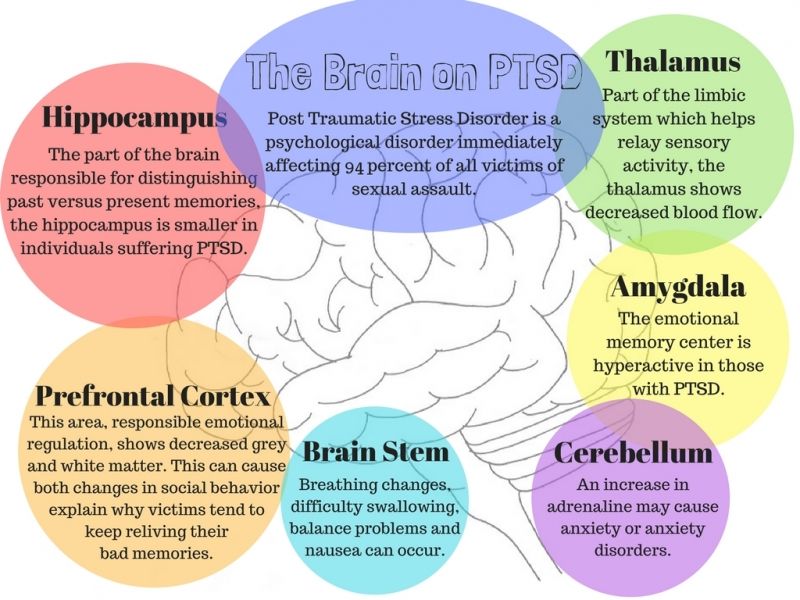
The death of a loved one is always painful, but it will be experienced differently, depending on the age and other internal and external circumstances of the grieving person, there is no doubt about that. At the same time, the author describes the characters' awkward attempts to have sex, which end in failure. Everyone knows that 14 years is the heyday of "transitional age", "pubertal period", a hormonal surge. The pain of loss, the painful breakup of relationships, the inability to complete what was started - everything mixed up and somehow settled in Humbert's psyche. This is a vivid example of the formation of trauma and the lack of an "emotional shelter". It can be assumed with a high degree of probability that Humbert's later life unconsciously revolved around this inner circumstance.
An equally plausible example from the literature can be the work of Gabriel Wittkop "Necrophilus", which, among other things, describes how the strongest childhood impression influenced the whole future life of the protagonist (one of the first experiences of knowing one's sexuality coincides with the moment of the death of his mother) .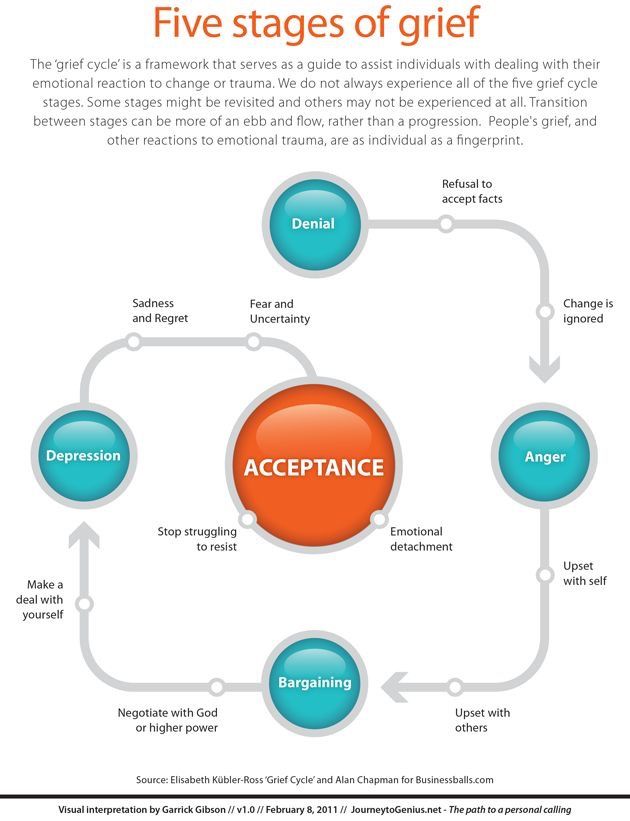 These are vivid but not exhaustive descriptions of traumatic experiences. Trauma can be rejection, observation of violence, frustration of needs and other situations that cause the most diverse palette of strong feelings that are excessive for the resources of the psyche - from fear to defenselessness. And, of course, trauma only in some cases forms the pathological development of the personality, in all others it only affects the development and makes itself felt in certain situations.
These are vivid but not exhaustive descriptions of traumatic experiences. Trauma can be rejection, observation of violence, frustration of needs and other situations that cause the most diverse palette of strong feelings that are excessive for the resources of the psyche - from fear to defenselessness. And, of course, trauma only in some cases forms the pathological development of the personality, in all others it only affects the development and makes itself felt in certain situations.
The world ceases to be safe, simple and understandable, the basic trust in the usual course of things disappears. Further life may be subject to new circumstances that have become entrenched in the psyche, and a person may feel that his life has split into “before” and “after”.
Even when major tragedies occur, such as a terrorist attack or a plane crash, many become unwittingly traumatized by the event.
The psyche failed, and there is nowhere to take your pain - there is no "emotional shelter". It all depends on the inner capabilities of a person: how painful the event turned out to be for him, and on what will happen next, whether there is someone nearby who can help and support.
It all depends on the inner capabilities of a person: how painful the event turned out to be for him, and on what will happen next, whether there is someone nearby who can help and support.
So the idea that psychological trauma can be associated solely with violence is equivalent to the phrase "only an open fracture can be considered a fracture!"
Trauma is trying its best to heal itself
Exactly like the bone tissue is trying to heal the fracture, but with any careless movement, the crack diverges again. If the damage is stronger than the crack, there is a high risk that the bone will not heal properly, and in order for it to grow back normally, you will have to break what is now.
The above examples of the works of Nabokov and Wittkop clearly demonstrate in what roundabout ways the upheavals and other painful circumstances of our childhood seek opportunities to live longer. We also know examples where a woman who has experienced sexual violence involuntarily begins to fall into circumstances in which violence can be repeated.
How to treat psychological trauma?
The most obvious answer from the question is psychotherapy. What has been asking for so long through the reproduction of a traumatic experience finds its life in language. The process of speaking makes something that lives inside us visible to another person - this process is called objectification. You can imagine it as a ball that appeared between me and the interlocutor, and we look at it together. Careful study, discussion, study of this material helps to loosen what has been in tension for so long. Of course, it is impossible to unsee what has been seen, but it is possible to make this something stop poisoning life.
The question arises: why is psychotherapy necessary? You can also talk to a friend.
Bringing his experiences to the therapist, it is much more likely that this person knows how to deal with this ball hanging in the air between him and the client. When the trauma comes to life in the language and becomes visible, there are two options for the development of events - either the trauma is healed, or a re-traumatization occurs - retraumatization.



